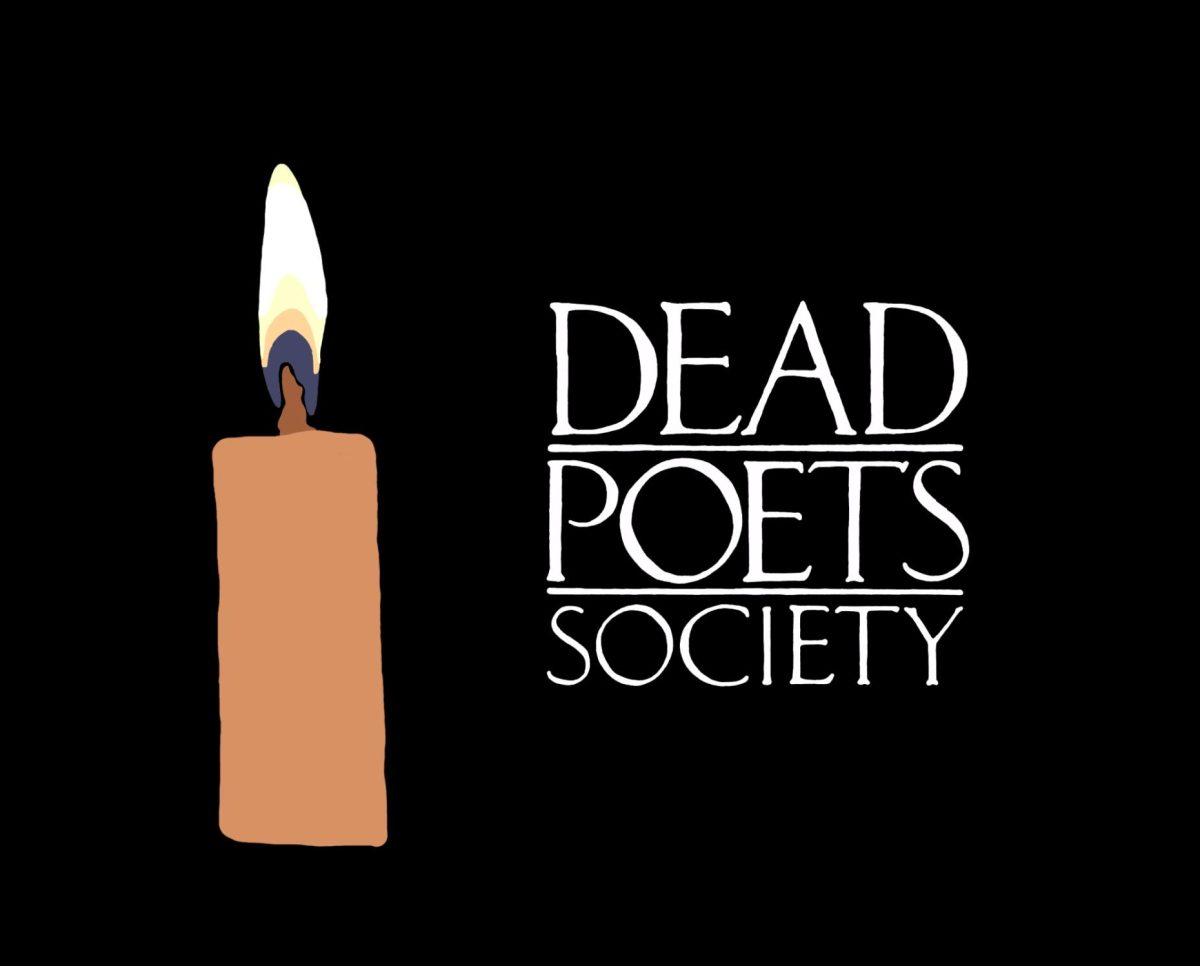Have you ever wondered what you might be capable of if you took advantage of every little opportunity you were given? Or what it might be like to follow every ambition you’ve dreamed of chasing? Well if you watch “Dead Poets Society” (DPS), you won’t have to wonder, cause you’ll just want to go out and do it.
The year is 1959. At Welton Academy, a rigorous all-boys preparatory school in Vermont, a new English teacher, Mr. John Keating, teaches his students very valuable life lessons that they might not have considered otherwise. Dangers of conformity, thinking outside the box, pursuing your greatest dreams, acknowledging your aptitudes, making everyday life extraordinary and many others. When a coterie of his students find Keating’s senior yearbook and question an old group he used to be a part of, an inspiration is sparked within seven boys’ hearts. Neil Perry, Todd Anderson, Charlie Dalton, Knox Overstreet, Stephen Meeks, Gerard Pitts and Richard Cameron – also known as “The Dead Poets” – all begin to charge through the school’s strict policies undaunted to bring back Keating’s old group. Little do they know, they will soon find their own ways to expand their passions and seize the day. But is it all worth it for the consequences they may face?
One of my favorite aspects of this film is how everything seems to be connected. When watching DPS for the first time, you don’t think twice of the events that take place in the first 30 minutes. But once you rewatch it, you begin to notice some of the foreshadowing that is subtly shown to the audience. And honestly, the more you watch, the more you notice.
As someone who’s obsessed with this movie and seen it at least a couple dozen times, everything in this movie seems to happen for a reason, especially when it comes to said foreshadowing. One example of the parallels in this film can be seen in Keating’s first scene.
“Seize the day,” Keating said. “Gather ye rosebuds while ye may… Because believe it or not, each and every one of us in this room is one day going to stop breathing, turn cold and die… Carpe Diem. Seize the day, boys. Make your lives extraordinary.”
Notice how the camera centers on Neil when Keating says “stop breathing, turn cold and die”? As heartbreaking as this one is, it was an incredibly clever addition to the movie.
Same with the camera focusing on Charlie saying “discipline” while the students of Welton list off the four pillars. This could be used to predict how Keating’s words led to Charlie breaking the rules a bit more often.
There is also a connection between the scene of Keating explaining the Dead Poets Society and both Todd and Knox’s futures. Keating tells the boys how their “spirits soared” and the “women swooned” while the camera focused on Todd then Knox. Essentially, this predicts how Todd will later on come out of his shell and follow his passions, while Knox is able to get the girl of his dreams.
While there are many theories that can be formed about the first chunk of the movie reflecting the rest, there is also a lot to discuss involving the boys’ character evolution once they begin to truly learn what Keating tells them.
Unlike all the other teachers at Welton, Keating is always determined to press the idea of his students thinking for themselves into their heads. But even then there are different reactions that his students seem to have, even among the Dead Poets.
Right off the bat, both Neil and Charlie are very interested in Keating’s words and poems, and begin to implement his “seize the day” saying into their lives. Charlie was the first one to rip the page out of his textbook, the first to call himself a Dead Poet and the first to write an original poem in their group. Neil was the first to call Keating “captain”, the first to introduce the society since Keating’s time and the first to use the term “carpe diem” outside of class. Not to mention the fact that when Keating told the students to come stand up on his desk, Neil and Charlie were the first ones to pop up from their seats.
Todd however, unfortunately appears to believe that there is no way for him to make his life more interesting than it already may be. This can be shown in the scene where he writes “seize the day” on a piece of paper and crumples it up. He wants to try, but isn’t sure how to.
Cameron seems to be a little hesitant to follow Keating’s ideas as well, but simply because he is a strict rule-follower and believer in the school’s four pillars (Tradition, honor, discipline and excellence). Especially the one sewn into the banner he carried at the beginning of the film: “Tradition”. He also writes down everything Keating says (his whole “carpe diem” speech, the lesson on the Pritchard scale) to make sure he is able to follow Welton’s academic expectations.
Even though originally not everyone believed in his methods like Neil and Charlie did, Keating pressed on to make sure his students could live wonderful lives of their own. And the more he shared with his students, the more it stuck. If you watch the characters closely you can visually see Keating’s words have an effect on the students.
Take Todd as an example. He started off barely being able to speak to his own roommate, but as soon as Keating had encouraged him to open up his imagination, he was able to create a powerful impromptu poem in front of all his friends and peers (which by the way, have you seen the way Neil looks at him during that scene?). While on the subject of Todd’s first poem, one of my personal favorites, a lot of the words he uses seem to have more significance than some watchers might think.
“I close my eyes and this image floats beside me,” Anderson said. “A sweaty-toothed madman with a stare that pounds my brain… His hands reach out and choke me… And all the time he’s mumbling truth, like a blanket that always leaves your feet cold… You push it, stretch it, it’ll never be enough. Kick at it, beat it, it’ll never cover any of us. From the moment we enter crying, to the moment we leave dying, it’ll just cover your face as you wail and cry and scream.”
The “madman” in this poem is whatever you might consider Todd to be afraid of. Mostly, his anxiety and fear of embarrassment. The “blanket” however, is his passion, likely his love of poetry. From his view, no matter how hard he tries to pursue his dreams and follow his passions, his greatest fears will always win the battle. But, of course, Todd ends up figuring out a way to manage the two and stand up – literally – for what he believes in. Way to go, Todd.
A lot of Charlie’s progression was shown within how he acted out for the things he believes in. Anytime Charlie was given the opportunity to take a leap for the group, he did it, but without taking everyone else down with him.
“Laughing, crying, tumbling, mumbling. Gotta do more, gotta be more,” Dalton said. “Chaos screaming, chaos dreaming. Gotta do more, gotta be more!”
Even though some might think Charlie’s fight against the schools’ policies was simply out of spite, it seemed to be his interpretation of Keating’s words. His versions of seize the day were the article asking for girls to be admitted to Welton, the “phone call from god” and his new persona, Nuwanda. All of these – especially his new name – seem to add up to his views on societal norms. These were him breaking free and fighting every expectation he’d ever been given. Not just in school, but in life too.
With that being said, it didn’t always turn out how he wanted. Even Keating had to put him in his place and remind him that he should seize the day and fight conformity, but not in a way that could be detrimental to his future. However, he of course gives that up near the end when refusing to sign the paper that could fire Keating. His life had been changed so much by his beloved teacher that he was willing to sacrifice his future for Keating’s job.
To me, this movie is amazing in every way possible. Ten out of ten stars. If you haven’t watched it yet, I highly suggest you do (but brace yourself). All its themes are still applicable to today’s society and could even open the eyes of some people who may be stuck hiding in the shadows. If this movie has taught me one thing – which lets be honest, it’s taught me a lot – it’s that everyone is capable of more than they realize. Including you. Whatever your dreams may be, big or small, I know you can follow your passions and seize the day. Carpe Diem!





















